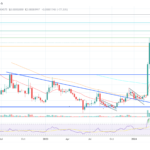[ad_1]
A new financial messaging standard will launch in 2025 but a substantial number of large banks say they won’t be ready in time.
A survey and analysis prepared by Celent, the financial technology research and advisory firm, found that only 63% of banks globally said they would be fully
SWIFT”s Sibos conference was held in Toronto in 2017 and returns to the city this year.
prepared. The report was commissioned by SEEBURGER, which has worked on digital transformation projects with some of the world’s top banks and large corporates.
Celent surveyed senior executives and their clients at 211 banks ranging in size from $50 billion in assets to over $500 billion and corporate executives at firms with $100 million in revenue and higher who are users of SWIFT. It also surveyed 211 large corporations to see what they were doing about ISO 20022.
“Most corporates are multibanked, with the average in our survey being 10 banking relationships, with 5% having more than 30,” Celent said. “Given their relationships, corporates may be best placed to judge readiness.”
While banks saw a global average of 72% readiness, large corporates were less sure about readiness, with 68% confident and smaller corporates even less optimistic, at 59%. Fifteen percent of corporates with revenues above $15 billion say their main bank has still to tell them the migration is even happening! And 19% of North American corporates report that their bank has told them about the migration but said that they don’t need to do anything at all.
Ulf Persson, senior vice president at SEEBURGER, said it is hard to determine how big a problem ISO 20022 readiness is.
“Nobody quite knows – and that’s part of the issue. If it’s a smaller bank, probably not very. If it’s a megabank or tier 1-2 bank, or the main bank for a specific country, then potentially quite significant. While there are smaller banks who are struggling, the data clearly shows that it’s not just limited to them. Remember, bigger banks have bigger challenges as they have more to change and have more at risk.”
European banks think they are doing well but only 8% believe the industry will be 100% ready; in North American not a single bank surveyed believes the industry will be 100% ready.
“Globally, 7% of banks under US$500 billion in revenue said as late as August 2022 that they had yet to even start a program. The industry can only hope that they use an indirect connection, as that seems improbable.” Celent notes that just 100 banks account for the majority of the volume on SWIFT. The most widely promoted advantage of ISO 20022 is data.
“Each data element is highly structured and is defined in the same way, not just in payments but across any use, whether capital markets, cards, or e-invoicing…the format can support both structured and unstructured data, and considerably more data at that.”
“It’s a data goldmine,” said Gareth Lodge, principal analyst, global payments at Celent during a webinar. If data is at the core of ISO 20022’s value, it is also part of the challenge for banks, said SEEBURGER’s Persson.
“…The value of ISO 20022 longer term will be driven by the data – both more data, and more structured data. Any system that touches that data needs to be upgraded as well – and that’s where many banks are struggling.” Banks that use an indirect connection, as Celent expects some will do, probably will lose data as it moves through the system.
“As soon as the message hits the bank’s own systems, all that extra data is lost – or not generated in the first place,” said Persson. “Given that corporates clearly see the benefits of that data, they will seek a bank who can give them that extra data. Many vendors are offering quick start programs to RTP and FedNow which insulate the banks and their customers from using 20022, to aid adoption. That’s a good thing. But then getting them to go that further step is a more challenging proposition.”
Celent thinks the stopgaps will fall short of what is needed. “All those who have used converters, done the bare minimum, etc., will find that those are just temporary fixes. They will have to spend even more to get them to where they actually need to be.”
When Celent asked bankers if they were making a comprehensive effort to implement ISO 20022 36% said yes and 45% said they were as comprehensive as possible given limitations of budget and technology. At the other end of the scale, 7% said they were doing the mandated bare minimum because they didn’t see the benefit.
“This includes 8% of the very biggest banks.”
Celent found that 10% of corporates globally were preparing contingency plans in case their banks aren’t ready and some said they would switch banks over ISO 20022. The new standard also supports cross-border payments and provides a global standard.
Because it can be used globally, it will attract a large number of vendors, giving banks and corporates more choice and, because it has so many users, fast updates. And, Celent said, ISO 20022 doesn’t have to be an all or nothing choice.
“An increasing number of standards, such as EDIFACT and TWIST, are being mapped to ISO 20022. That enables translation between differing standards by using ISO 20022 as a bridging standard, even if the originating and receiving parties don’t use ISO 20022 themselves.”
In the webinar, Lodge warned that the 2025 deadline is real. Lodge said he has had a number of conversations with banks who think the can will get kicked down the road. That can’t happen because so many moving parts are related to it, he said in the webinar.
“It’s not just 11,000 banks, it’s 40-plus high value payment systems around the world. Target II which links all the central banks in Europe. It might be a slight delay of a few months, which in the scheme of things is not massive, but we won’t know that until after the deadline. It can’t be kicked down the road indefinitely, it has to happen.”
[ad_2]
Source link
My NEO Group:
– White paper My NEO Group: https://myneo.org
– Discover NEO X: https://docs.myneo.org/products/in-development/neo-x
– Disccover NEO Dash: https://myneodash.com
– Discover Banca NEO: https://bancaneo.org
– Interview of the CEO of My NEO Group, Mickael Mosse, in Forbes: https://forbesbaltics.com/en/money/article/mickael-mosse-affirms-commitment-to-redefining-online-banking-with-bancaneo






